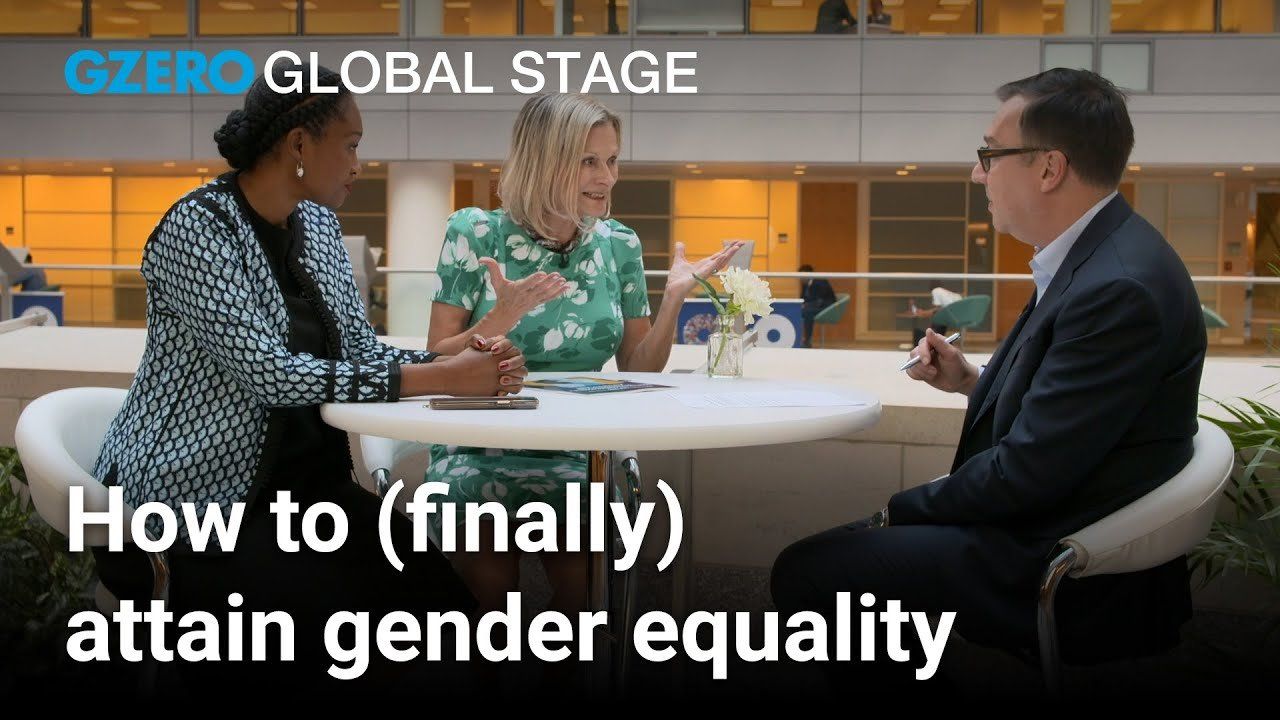
It has been nearly 30 years since former US Secretary of State Hillary Clinton declared at the UN Conference on Women, hosted in Beijing, that “Women’s rights are human rights.” While progress has been made in some key areas, like education and access to healthcare, the number of women in the global labor force has remained largely stagnant since the 1990s. Women still trail men overall in income, digital inclusion, and even access to banking.
This week World Bank announced a bold initiative to bridge that divide by creating more economic opportunity, broadening female leadership, and reducing gender-based violence in the next 5 years as 2030 approaches. GZERO’s Tony Maciulis spoke to two of the architects of the plan—World Bank’s Global Head of Gender Hana Brixi, and Nathalie Akon Gabala, who is Global Director of Gender and Economic Inclusion at the International Finance Corporation.
Many global organizations have pledged to close the gender gap and have fallen short. Brixi tells Maciulis “more transparency and more accountability” will be needed to succeed, and details the approach World Bank will take in the coming years.
Watch more from Global Stage.
- Biden targets gender inequality in medical research ›
- What impact will AI have on gender equality? ›
- Graphic Truth: Are Canada and the US narrowing the gender pay gap? ›
- Bloc by Bloc: The gaping gender divide in the 2024 election ›
- DVF in Davos: A fashion icon is still fighting for gender equality - GZERO Media ›
- Leaders at Davos are turning "anxiety into action" - GZERO Media ›